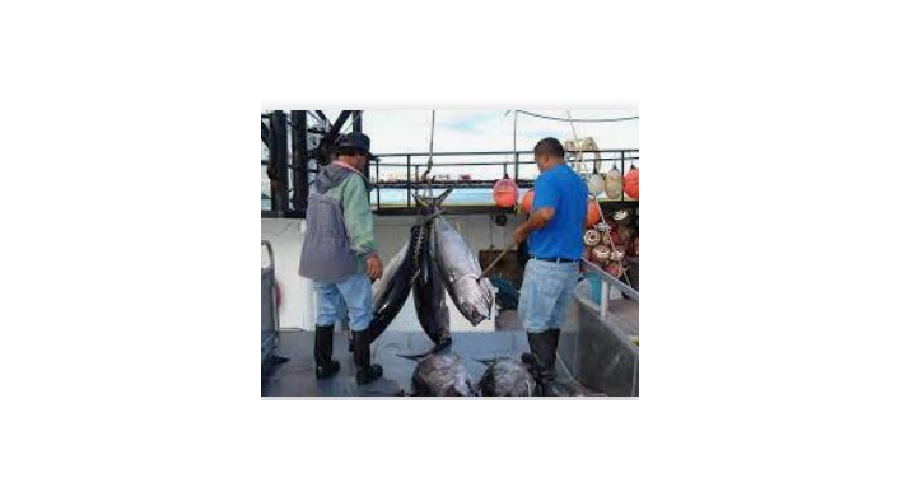LONDON. – Tuna fishing in a swathe of Pacific Ocean covering a fifth of the world’s surface has been thrown into question by a landmark ruling that criticised it for putting species at potential risk of extinction.
Quoting Press Release.
An independent adjudicator for the Marine Stewardship Council (MSC) has upheld two key objections by the Coalition for Transparent Tuna Fisheries (CTTF) to the licensing of the Pacific Ocean’s immense Parties to the Nauru Agreement (PNA) fishery.
Adjudicator John McKendrick QC voiced concerns over harvest control rules and habitats management – a ruling that means bigeye tuna extracted from the area will not meet the MSC standard needed for it to be sold in most western markets.
The decision highlights concerns over the use of environmentally destructive fish aggregating devices or FADs – manmade floats that drift across the ocean which are blamed for decimating populations of sharks, turtles, and juvenile tuna.
The viability of the much bigger-selling yellowfin and skipjack tuna is now in doubt as the MSC prepares to consider whether or not their fishing is sustainable in the light of McKendrick’s ruling.
In his ruling, John McKendrick QC said, "there are no harvest control rules in place or available". He also cast doubt on the overall sustainability of FADs, "I agree that FAD fishing and purse seine is damaging to the marine environment".
McKendrick also said there is no evidence to show harvest control rules would be introduced to ensure bigeye tuna stocks would not fall below sustainable levels if fishing of the species continued.
The decision has been hailed as a major victory in the campaign to stop unsustainable tuna fishing. “It places a depth charge beneath the destructive habits of the global tuna fishing industry,” said Coalition for Transparent Tuna Fisheries convenor Alex Hofford.
“This is a watershed moment, and it could trigger a tsunami of rulings that finally slow down the relentless destruction of ocean species. Many retailers in the United States source their tuna from the PNA so this ruling on FADs could have significant future impacts on their supply chains.”
In its objection, a total of fifteen points of objection were submitted by CTTF, and two were upheld by McKendrick – one point related to 'Habitats Management Strategy' (PI 2.4.2) and one to 'Harvest Control Rules' (PI 1.2.2). According to the rules of the MSC objections process, even if only one point is upheld, the fishery under assessment cannot be certified as sustainable.
CTTF is now calling on the Marine Stewardship Council to immediately halt any new drifting FAD fisheries being proposed for MSC certification to save its reputation as a responsible certification body with integrity.
Habitats Management Strategy
The MSC Standard says there must be "a strategy in place that is designed to ensure the unit of assessment does not pose a risk of serious or irreversible harm to the habitats."
CTTF’s objection on this point made the point that the PNA (the unit of assessment) had no strategy to minimise the environmental impacts of drifting FADs and had no evidence of plans to transition towards the use of non-entangling FADs and biodegradable FADs.
Harvest Control Rules
Simply put, due to a lack of bigeye tuna harvest control rules set by the Western and Central Pacific Fisheries Commission (WCPFC), the international body which oversees fishing in the western and central Pacific Ocean, the objection was upheld. The WCPFC represents the interests of 26 member states, mostly in or around the Pacific region.
In an earlier July ruling made during the lengthy adjudication process, Mr. McKendrick had said "As an Independent Adjudicator it is part of my role to stand back and consider how a consumer of seafood, walking through the aisles of a supermarket considering which seafood to buy, would view this matter. A knowledgeable consumer might know that the MSC standard requires that harvest control rules are in place or available that are expected to reduce the exploitation rate […]. At the least an informed consumer would have a feel for the core principle of the MSC standard that: “A fishery must be conducted in a manner that does not lead to overfishing or depletion of the exploited populations”.
End of Press Release.
The MSC’s Independent Adjudicator John McKendrick QC’s Post Remand Decision dated 12 July 2022 can be downloaded and read here:
https://fisheries.msc.org/en/fisheries/pna-western-and-central-pacific-skipjack-yellowfin-and-bigeye-tuna-purse-seine-fishery-fad-and-non-fad-sets/@@assessments (Click on PNABigeyePostRemand.pdf)
About CTTF
The Coalition for Transparent Tuna Fisheries (CTTF) brings together a group of eighteen like-minded organisations that are concerned about the ongoing negative environmental impacts that industrial tuna fisheries, and the destructive fishing gears they use, are having on ocean biodiversity. The ocean contains unique biodiversity and fragile ecosystems, is a valuable source of food and is also a major sink for anthropogenic carbon. In the face of the accelerating impacts of climate change, high levels of biodiversity loss, and increasing human pressures on the ocean, CTTF believes that responsible stewardship is required now more than ever to ensure that tuna fisheries are truly sustainable and that they are operated in a transparent and responsible manner.
ebsite: https://cttf.uk/
Media contact: Alex Hofford, Convenor, CTTF
Tel: +44 7366 200761 / Email: alexhofford@gmail.com
Yours sincerely
Frank Short



